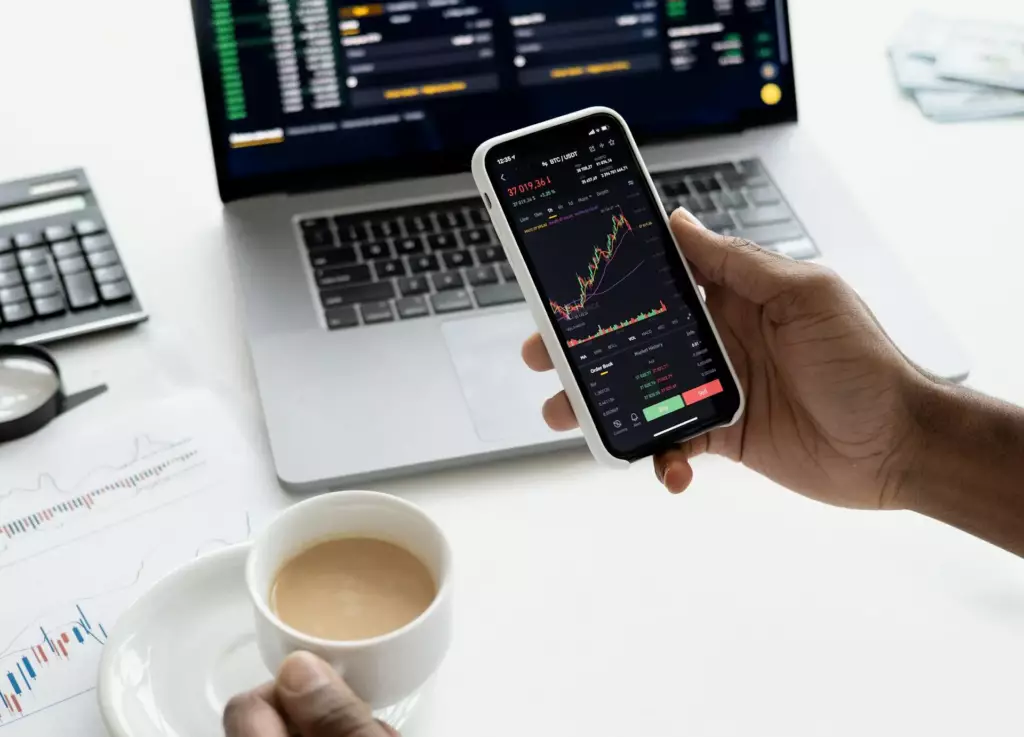
Artificial intelligence and economics are becoming increasingly interconnected, transforming not only how financial markets operate, but also how companies design their business models. As technology advances, artificial intelligence (AI) has become a key catalyst for economic innovation, with profound implications for how resources are managed and optimized around the world.
Impact on Financial Markets
The relationship between artificial intelligence and economics is especially evident in the financial markets, where AI is revolutionizing the way transactions are conducted and investments are managed. Automated trading algorithms, known as “algorithmic trading”, enable the execution of stock market operations in fractions of a second, optimizing speed and accuracy in decision making.
These systems use vast amounts of real-time and historical data to identify patterns and predict price movements with impressive accuracy. As a result, artificial intelligence and economics are becoming increasingly intertwined, with investors and fund managers relying on AI to maximize returns and minimize risk.
In addition, artificial intelligence is facilitating access to advanced financial analytics for a wider audience. AI tools enable companies and individual investors to make more informed decisions based on complex data that were previously only available to large financial institutions.
Business Model Transformation
The impact of artificial intelligence on the economy is not limited to financial markets; it is also radically transforming business models in a variety of industries. Companies are using AI to optimize their operations, improve efficiency and reduce costs.
In the retail sector, for example, AI systems are revolutionizing inventory management and the customer experience. By analyzing data from past purchases and consumer behavior trends, companies can more accurately predict which products will be in greatest demand, thus adjusting their inventories accordingly. This not only reduces waste, but also improves customer satisfaction by ensuring that the products they want are available when they need them.
In manufacturing, artificial intelligence is driving process automation and smart manufacturing. AI-equipped factories can monitor and automatically adjust their operations in real time, resulting in more efficient production and fewer errors.
Artificial Intelligence and Economics: Towards a New Era of Finance
The intersection between artificial intelligence and economics is also opening up new opportunities in the financial sector. Banks and financial institutions are using AI to improve fraud detection, personalize customer services and optimize risk management.
For example, AI-powered chatbots are transforming the way banks interact with their customers, offering immediate and personalized assistance 24 hours a day. This not only improves the customer experience, but also frees up human resources for more complex tasks.
In addition, artificial intelligence is playing a crucial role in credit risk assessment. By analyzing a wide range of data, from payment history to social media behavior, AI systems can more accurately predict the likelihood of loan default, enabling lenders to make more informed decisions and reduce default rates.
Conclusion
In summary, artificial intelligence and economics are converging to shape a new economic landscape. From financial markets to business models, AI is redefining the way businesses operate and make decisions. As the technology continues to evolve, we are likely to see an even greater impact of artificial intelligence on the global economy, driving innovation and growth across all sectors.
The adoption of AI not only offers significant opportunities, but also poses challenges that must be addressed. Companies that manage to effectively integrate artificial intelligence in a way that allows them to reap the benefits and without relying entirely on it will be better positioned to compete in an increasingly digital and dynamic marketplace. The key is to recognize the transformative power of artificial intelligence and economics, and harness it to build a more efficient and prosperous future.

